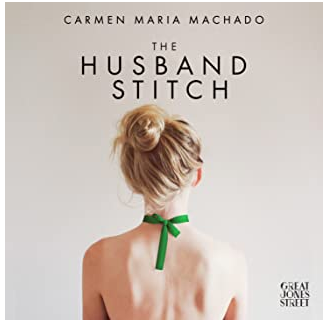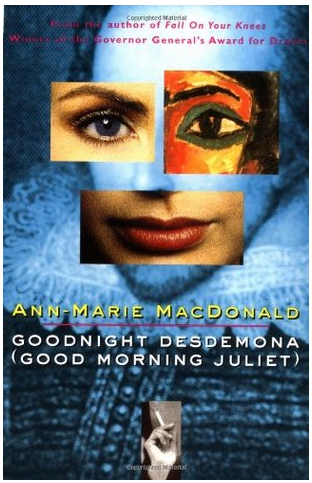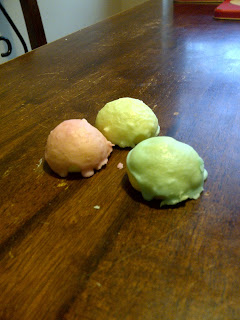The Best Reads of 2020...So Far
If you ask me what my favourite item in a specific category is, I'll struggle to come up with one answer. Asking me my favourite cheese, for example, would be a nightmare because I love almost all types of cheese. How could I pick only one?!? So this list is going to be the best reads of 2020 so far, and I'm not going to limit the number of books I list here. Just a few notes before I start this list:
1.) Although they may not have been published in 2020, these publications are ones I've read and loved in 2020.
2.) I have been doing my own challenge this year where I must read one from each the following categories every month:
-classic
-collection of poetry/poems (5 to 10 poems by the same poet)
-short story collection/short story*
-play*
-translated fiction
-nonfiction*
-reread
-fiction by a new to me author*
-book club pick (I run a monthly book club)
*I've completed this category already
Okay, here we go!
Let's go through by genre. First up is classics. I've included modern classics in my reading, too. I'm not always a big fan of classics originally written in English because many dated texts haven't aged well.
So far this year, the classic that I loved is The Secret Garden by Frances Hodgson Burnett. This pastoral story was so enjoyable to read because of the growth and development of both Mary and Colin. Although both children are quite spoiled, they lack paternal love and affection. They find strength and joy in themselves, in one another and in their friendship with Dickon. Although this was originally published in 1910, I appreciate that the children's genders don't prevent their bonds of friendship from developing or get in the way of the plot.
I have lots of favourite short stories so far!!! I love short stories in general though. My grade eight teacher introduced me to them when she assigned James Reaney's The Box Social. The story has a disturbing ending, but it packs such a punch which is why I reread it this year. It's still a phenomenal short story, as is The Yellow Wallpaper by Charlotte Perkins Gilman. Another short story written by a Canadian (James Reaney was Canadian) that I really, really enjoyed was Happy Endings by Margaret Atwood. Atwood and Gilman's stories are both about heterosexual relationships (and marriage), as is The Husband Stitch by Carmen Maria Marchado. The Husband Stitch was sooo good. There are elements of Alvin Schwartz's short story, The Green Ribbon in Marchado's story. LOVE! Marchado's version is not appropriate for kids though. One short story that I loved so much that I've included it in my book club choices for next year is Flann O'Brien's Two in One. It's also disturbing...I sense a theme here. The last short story I read and loved is In a Grove by Ryunōsuke Akutagawa which looks at the reliability of witnesses to a crime. It's a fantastic look at narration and unreliable narrators in the sense that people don't always remember events accurately. FANTASTIC. The short stories I've mentioned are all worth a read, and I hope that you're able to carve a little time out of your busy day to read one or two of them.
Let's talk plays. I don't know why I don't make it a priority to read more plays. I've realized that they're one of my favourite genres! Some of my favourites are The Goat, or Who is Sylvia? by Edward Albee, Twelfth Night by Shakespeare and The Importance of Being Earnest by Oscar Wilde. This year some really good plays were M. Butterfly by David Henry Hwang and The Metal Children: A Play by Adam Rapp and Ann-Marie MacDonald's Belle Moral. But my favourite so far has been Goodnight Desdemona (Good Morning Juliet) by the aforementioned Canadian playwright, Ann-Marie MacDonald. I remember reading Goodnight Desdemona (Good Morning Juliet) when I was in high school and enjoying it. But I understood so much more and had such an amazing reading experience reading it as an adult. As soon as I finished it, I ordered Belle Moral. I don't want to give too many details about Goodnight Desdemona (Good Morning Juliet) here because it's so short! However, I've included a link to my review on goodreads.com: https://www.goodreads.com/review/show/3278500416?book_show_action=false&from_review_page=1
Unfortunately, I haven't enjoyed a lot of the translated fiction I've read this year. However, Convenience Store Woman by Sayaka Murata was fantastic! I like Keiko's, the protagonist's, unwillingness to participate in society in an acceptable manner. The New Yorker called this "a love story between a misfit and a store" (https://www.newyorker.com/books/page-turner/sayaka-murata-eerie-convenience-store-woman-is-a-love-story-between-a-misfit-and-a-store). I like that idea! But there's so much more to the story than that. Convenience stores are an integral part of Japanese society. It sounds weird to say, but it's true, especially in big cities, and Murata's story captures the ways in which people depend on these convenience stores. The story is also a contemplation on many of Japan's current social problems, such as men who become hermits, female overachievers who have been brainwashed into believing that they must date (and subsequently marry) men who earn more than them and will financially support them. But most importantly, the story is a look at what happens when a woman—whose worth is still measured by what she achieves: gets high grades in school, obtains a job that pays well, gets married and, of course, bears children—refuses to conform to societal norms. The thing is, Keiko is conforming to Japanese societal pressures and expectations as more and more companies try to squeeze every last ounce of productivity from their employees. Keiko willingly and even lovingly commits herself to her job. But Keiko's dedication to her job reaches a level that even Japanese people don't feel comfortable with when it interferes with the demands that culturally are expected of her (marriage and child rearing). Katy Waldman the author of The New Yorker article comments on these things in her article, but I think that many readers see Keiko as weird because Keiko takes her job, a job as a convenience store clerk, so seriously. There's tension about Keiko's commitment to a job. There should be tension considering that people in Japan have worked themselves to death (https://www.theguardian.com/world/2017/oct/05/japanese-woman-dies-overwork-159-hours-overtime), committed suicide because of their demanding jobs (https://www.bbc.com/news/business-39981997), etc...I highly suggest reading this alongside Jenny Odell's How to Do Nothing: Resisting the Attention Economy and also doing just a bit of research about Japan's dying art culture.
Moving on to nonfiction because it's another genre I don't usually read a lot of but yet really enjoy reading! Sometimes, I like to read the physical version (purchased) so I can underline the text and write notes in the margins (I'm sorry to those of you cringing now!). Sometimes, I like to listen to nonfiction in audiobook format as it gives life to otherwise dull or difficult subject matter. I feel like my perception of nonfiction books was that they are dull and boring because they're fact-heavy, lack engaging prose and have nothing new/interesting to educate me about. That's obviously not true, but I was very ignorant. I'm so glad that I made a conscious effort to read more nonfiction though. I've found some very-well written, engaging and informative books out there! The first one I read that I devoured was Val McDermid's Forensics: The Anatomy of Crime. If you're like me and like mystery, crime thrillers and/or true crime, then may I suggest reading McDermid's work? Val McDermid also writes fiction, but I haven't read any of her fiction work yet!
Another nonfiction I really enjoyed was The Romanovs 1613--1918 by Simon Sebag Montefiore. I listened to this as an audiobook. There is A LOT of information here, make no mistake. I don't remember EVERY Romanov mentioned in this book, but I felt a lot better informed about the family's history after listening to this. I also appreciated the Russian history lesson.
One of the most important nonfiction books that I read this year was The End of Policing by Alex S. Vitale. The content in this book is better than the prose style, but it's not poorly-written (or edited). It's just a bit more traditional in what I think of as a nonfiction book. It's a comprehensive review of policing in the US and a look at the ways in which police are burdened with providing services in society that they are neither equipped nor responsible for providing. It's not a defense of their behaviour but rather an in-depth analysis of how the police need reform...A complete overhaul. Please read this!
The last nonfiction I read that I couldn't stop listening to was Vivek Shraya's audiobook version of I'm Afraid of Men. WOW. I felt both proud of Shraya (a Canadian writer) and ashamed of how I behave as I'm not being a better ambassador and protector of women. Honorable mentions are: No Visible Bruises: What We Don't Know About Domestic Violence Can Kill Us by Rachel Louise Snyder, Why I'm No Longer Talking to White People About Race by Reni Eddo-Lodge and Overdose: Heartbreak and Hope in Canada's Opiod Crisis by Benjamin Perrin. They're tough but necessary reads.
The one fiction book by a "new-to-me" author that I thought was fantastic was My Sister the Serial Killer by Oyinkan Braithwaite. This well-loved book is all over the internet, so I'll spare you my prattle, but I really enjoyed this story because of the relationship between the sisters! Honourable mention: Women Talking by Miriam Toews
Lastly, I wanted to mention children's books. Yeah...I still read children's books. Not a lot but a few. So many of my friends have young kids or are having kids, and books are my favourite gift to give little ones. So far this year, I've loved The Day You Begin by Jacqueline Woodson. The story is about what may happen, why and how to cope with it when you're someone who looks and perhaps behaves differently than other kids at school. I would have appreciated having a book like this when I was a kid! The next book that I thought was fantastic is Punctuation Takes a Vacation by Robin Pulver. Say what you want, but I believe that punctuation is important and tends to be used incorrectly. I've seen some people not even use periods. Lovely. Yes, I'm being sarcastic.
If I've written reviews of any of these works, they're on my goodreads.com page here: https://www.goodreads.com/user_challenges/19332633.
I hope that you're having a great reading year! I'm not doing as much reading in the second half of the year, but I'm going to try to be better at dedicating more time to book blogging! Please let me know if you've read any of these books and what you thought of them or if you plan to read any of the books I've listed above. Happy reading!!!


















Comments
Post a Comment